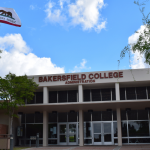One of the personal satisfactions in working in financial aid is the ability to directly impact a person’s life.
Whether it’s being a mentor, advising a student about how to find money to pay for school, or providing someone with tips on how to manage their money, all of us can attest to the difference we can all make in the life of a student.
Underlying everything we do is the fundamental belief that the future is not set in stone and that we can all make a difference.
I believe a key element in this thinking is a theme called “Mindset.” The origins of this topic can be traced to a seminal book by Stanford Professor Carol Dweck by the same name.
In a nutshell, we observe “fixed mindsets” as well as “growth mindsets” among different people. Often, in the “fixed mindset”, people see things as permanent, especially any traits or talent they have. This can lead to people not growing over time, not challenging themselves, not learning, and not investing in themselves, in order to develop and improve their talents.
The “growth mindset”, on the other hand, believes that all of us can improve, and that improving requires effort. The person with a “growth mindset” sees a challenge, and gets excited about how to overcome it.
As we work every day with our colleagues and with students, it’s useful to keep in mind the two mindsets. If we start with ourselves, we can find ways to grow and improve our own skills and be better at what we do.
As we impart knowledge and guidance to students, we can also hope that they will grow in their abilities and take on challenges with the hopeful mindset of overcoming them and growing as individuals.
And from there, the people we help can positively impact others. Thus multiplying the impact of what we all do to help students many, many times over.















